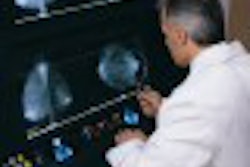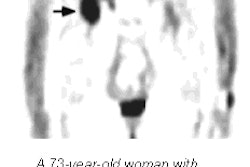Does anxiety about breast cancer screening -- or even a fatalistic attitude toward the disease -- affect whether a woman will show up for a mammography appointment? Two recent studies have yielded some answers.
Public health researchers from Clemson University in South Carolina gauged the attitude of elderly women in a rural community to breast cancer screening, while a group out of the University of California, San Francisco examined how the time lapse between tests corresponds with a patient’s anxiety after an abnormal mammogram.
Rachel May, Ph.D., and colleagues surveyed 220 women, aged 50 years and older, who were recruited from six large rural counties in South Carolina. Data such as age, race, and education was collected through in-person interviews and a questionnaire over a three-month period.
An 11-point Powe Fatalism Inventory (PFI) was used to gauge "demonstrated beliefs [about breast cancer] including fear, predetermination, pessimism, and inevitablity," the authors wrote. The study’s scale was designed to measure the defining characteristics of fatalism toward breast cancer, toward screening, and toward the course of cancer and death (Journal of Women & Aging, 2001, Vol.13:1, pp. 57-71).
The majority of the respondents were African-American (61%), resided in a rural area (71%), were over the age of 70 (64%), and had less than an eighth-grade education (47%). According to the results, 33% of the sample population either had not participated in a mammography screening program in the previous two years or had never had a mammogram.
May and her colleagues reported that the study's respondents had a significant positive association of breast cancer with fatalism. Respondents to the survey had an average PFI score of 5.42 (a score of 11.0 indicates the highest level of fatalism). In addition, the mean PFI for those with less than an eighth-grade education was 4.4, compared to 2.2 for the group with some higher schooling.
For those in compliance with breast screening recommendations, the mean PFI was 5.95 compared to 7.72 for those in noncompliance.
"The data suggests that the construct, fatalism, may be an important cognitive factor to consider in understanding mammography screening in older women...existing, ongoing educational interventions can be modified to include messages directly addressing fatalism toward breast cancer," the Clemson group concluded.
In the second study, a multidisciplinary team from UCSF asked "Does timely assessment affect the anxiety associated with an abnormal mammogram result?"
"Receiving an abnormal mammogram result can...perhaps affect subsequent adherence with mammography," wrote Dr. Jennifer Haas and co-authors in the Journal of Women’s Health & Gender-based Medicine (July-August 2001, Vol.10:6, pp. 599-604).
In a telephone survey, the group polled 449 women who had recently received a mammogram result that required further evaluation. The subjects were required to participate in a baseline survey, as well as a follow-up survey. Of these participants, 63% were postmenopausal, and almost 30% had received a previous cancer diagnosis.
Following an abnormal breast cancer screening result, 26% of the respondents reported being very anxious at the time of the baseline survey, while 22% reported that same level of anxiety at the follow-up survey. Women with greater anxiety at the baseline were generally more anxious at the time of the follow-up survey, and substantial anxiety remained over an eight-month period, the group reported.
"Half of the women received follow-up evaluation within 1 week of their index mammogram. In contrast, over a quarter of the women (26.5%) did not receive follow-up within 60 days," they wrote. "Prior studies have used definitions of timely follow-up of an abnormal mammogram result of 8-12 weeks. Although a 12-week delay may not affect survival for many women, this delay may be associated with persistent, and perhaps unnecessary, anxiety."
There's also a limited market for quick results. A recent study in Radiology revealed that women are not willing to pay an extra fee for obtaining breast cancer screening results faster.
By Shalmali PalAuntMinnie.com staff writer
October 10, 2001
Related Reading
UK women get breast cancer after screening mix-up, October 5, 2001
Patients won't pay more for quick breast cancer screening results, September 6, 2001
Grassroots groups address high breast cancer rate among immigrants, March 30, 2001
Researchers around the world seek solutions to increase breast cancer screening, April 17, 2000
Copyright © 2001 AuntMinnie.com



















